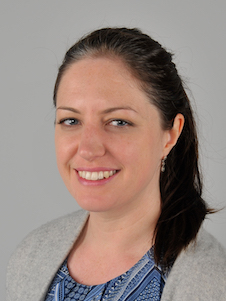 Tuesday 25 June 2019 2:32pm
Tuesday 25 June 2019 2:32pmA 10 per cent tax on sugary drinks has cut the purchase and consumption of sugary drinks by an average of 10 per cent in places it has been introduced, a just published major review shows.

Dr Andrea Teng.
Researchers from the University of Otago, Wellington, combined evidence from settings where a sugary drinks' tax had been applied and evaluated it into a meta-analysis. Studies included four cities in the US: Cleveland, Ohio; Portland, Maine; Berkeley, California; and Philadelphia, Pennsylvania. A regional tax was studied in Catalonia, Spain, and the effects of country-wide taxes were studied in Chile, France and Mexico.
The research is published in the international scientific journal, Obesity Reviews.
Lead author Dr Andrea Teng says the research takes a new approach in combining multiple studies examining the real-world impact of sugary drink taxes on sales, purchases and dietary intake before and after taxes were imposed, or between taxed and un-taxed settings.
“This new review presents compelling evidence that sugary drink taxes result in decreased sales, purchasing or dietary intake of taxed beverages. For a 10 per cent tax, sugary drink volumes declined by an average of 10 per cent.
“It shows taxes on sugary drinks are an effective tool to reduce consumption, and we know from other research that the high consumption of sugary drinks increases the risk of obesity, diabetes and dental caries.”
Dr Teng says there is also evidence that sugary drink consumption may contribute to heart disease, cancer and premature death.
Some of the studies looked at the alternative drinks people consumed instead of sugary drinks after the tax was applied. With a 10 per cent tax on sugary drinks, there was a 1.9 per cent increase on average in such alternative drinks, and for water specifically there was a 2.9 per cent increase. This healthier substitution pattern is not conclusive, but in three out of the four settings where substitution occurred, the increase in consumption of the other non-sugary drinks was statistically significant.

Dr Amanda Jones.
A co-author of the review, Dr Amanda Jones, says all the individual studies in the review found a reduction in sugary drink consumption, but the impact in some settings was greater than others. Applying tax by thresholds of sugar content, rather than as a percentage of price, appeared to be important for determining a more favourable impact.
Other reasons for differences between settings may be the combination with other obesity prevention policies, the public's awareness of the tax, industry responses, consumer preferences, border permeability, availability of alternative beverages, and sensitivity to price. For example, Chile also decreased tax on low-sugar beverages at the same time as increasing the tax on high-sugar beverages; Mexico introduced a sugary drinks tax combined with a junk food tax; and France also taxed soft drinks with artificial sweeteners.
“Some of the differences found in these studies may also be due to non-price mechanisms. For example, a tax may signal to the public the seriousness of the health concern associated with consuming a product,” Dr Jones says.
“A tax can also prompt manufacturers to reformulate sugar levels downward, as seen in the UK, even before their tax was introduced in April 2018.”
Some studies looked at the impact of sugary drink taxes by socio-economic factors, but more research is needed in this area, the authors say. In Mexico, for instance, there were greater consumption declines in lower income households, while the opposite was true in Chile.
The World Health Organization recommends governments impose a 20 per cent tax on sugary drinks, saying the evidence for reduced consumption and meaningful health effects is strongest for this food category. While successive New Zealand Governments appear to have had little interest in introducing sugary drink taxes, Dr Teng says: “It is probably inevitable that this type of tax, which is highly targeted at protecting child health, will need to be seriously considered by New Zealand politicians.”
In the meantime the Government has a range of other options, she says, including:
- Prohibiting all sugary drink sales at all schools and sports facilities used by children. This is already happening at some schools.
- Banning all sugary drink advertising that is targeted at children.
- Introducing mandatory health star ratings on sugary drinks and other food and beverages.
- Introducing a cap on serving sizes for sugary drinks as has been done in France. (See recent New Zealand modelling.)
Read the research paper:
'Impact of sugar-sweetened beverage taxes on purchases and dietary intake: systematic review and meta-analysis', is published in Obesity Reviews.
For further information, contact:
Dr Andrea Teng
Department of Public Health
University of Otago, Wellington
Email andrea.teng@otago.ac.nz
Liane Topham-Kindley
Senior Communications Adviser
Tel +64 3 479 9065
Mob +64 21 279 9065
Email liane.topham-kindley@otago.ac.nz
Find an Otago expert
Use our Media Expertise Database to find an Otago researcher for media comment.